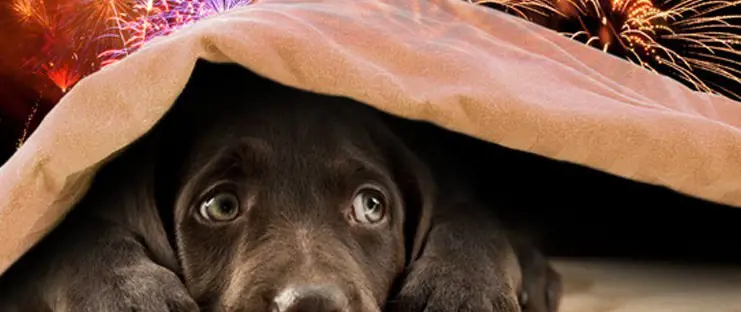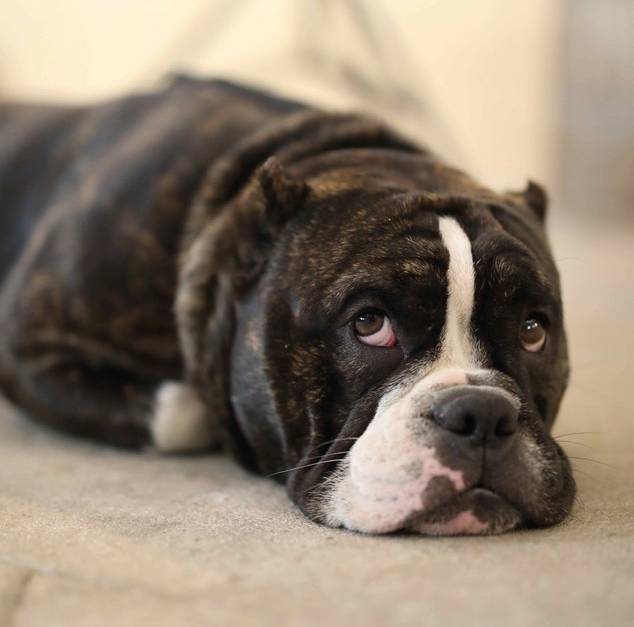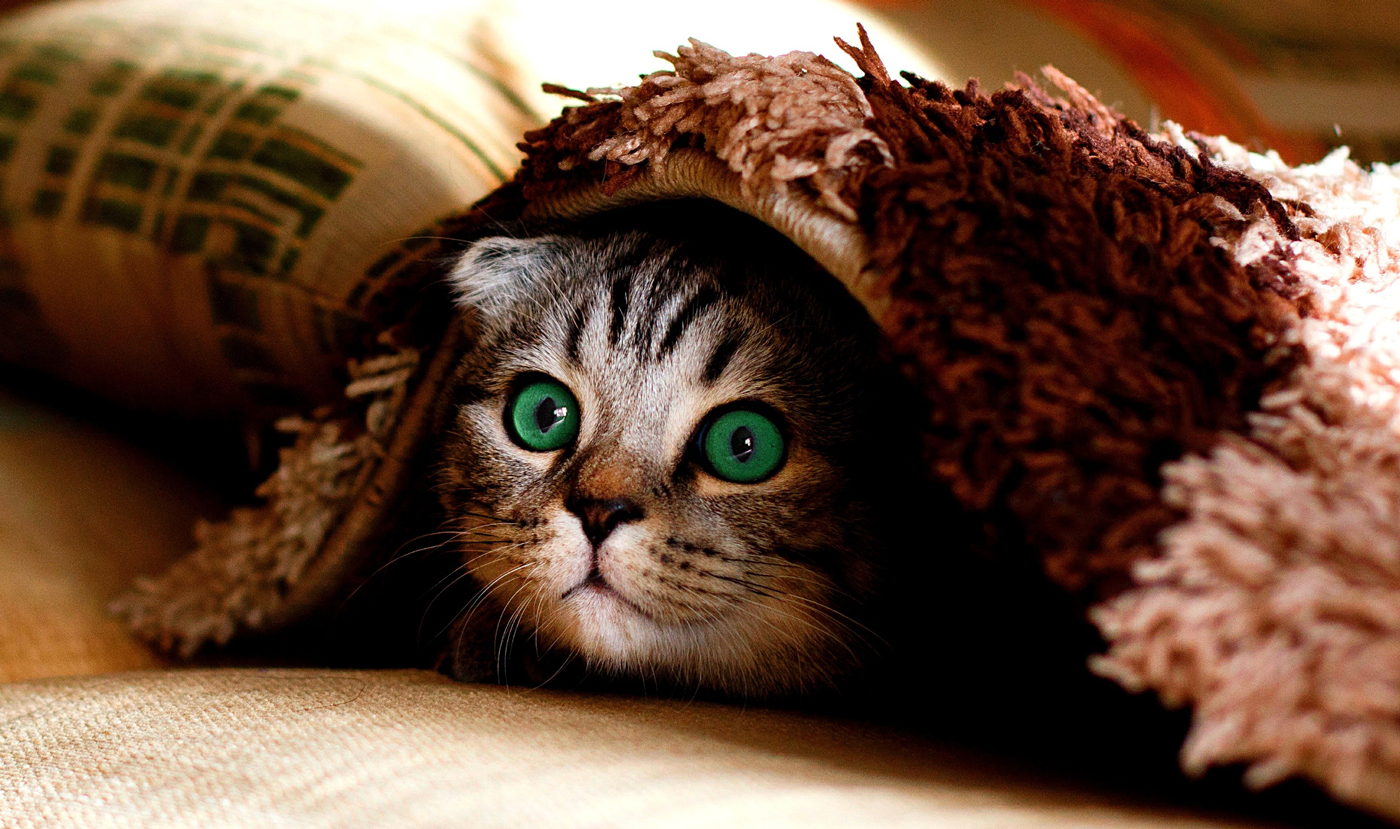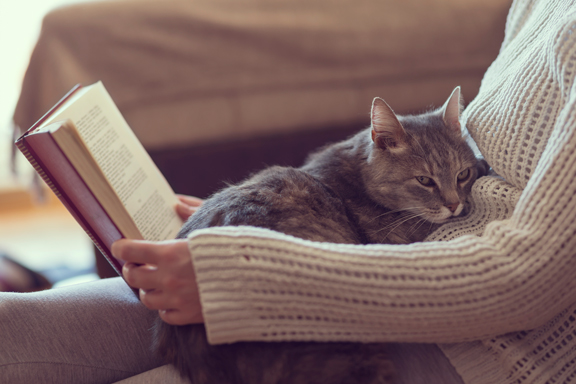How do you keep your pets safe on Bonfire Night?
21st October, 2019

It’s the time of year that many pet owners dread: when their canine and feline friends are likely to be found cowering under a chair trying in vain to escape the bangs of fireworks.
The RSPCA estimates that around 45% of UK dogs are scared of bangers, rockets and fire crackers. Cats may act cooler but are also unlikely to be firework fans.
So remember, remember your pet on the fifth of November, and take care to keep them secure and comforted throughout the festivities.
Read on for our tips on how to keep your cat purring and your dog’s tail wagging on Bonfire Night, and how to make sure they’re covered by pet insurance should any mishaps occur.
Why are dogs afraid of fireworks?
Put yourself in your pooch’s place. They’ve got used to all the strange noises they encounter regularly in their daily life: cars, washing machines, kids. But what about loud, sudden bangs and flashes of light that happen only occasionally, and at unpredictable intervals?
It’s very hard for a pooch or moggy to get accustomed to fireworks, let alone understand what they’re all about. Instead, your pet’s fight-or-flight instinct is triggered – and since there’s nothing to fight, they flee.
However, it’s almost impossible to escape the noise: even when they run to their basket, or hide under their favourite chair, the bangs continue. Then they feel trapped, and their misery worsens.
What’s more, your pooch or moggy has more acute hearing than you, so fireworks are even louder to their ears.
Kittens and puppies, of course, are generally more easily frightened by fireworks than older animals, while rescue animals could also find the noise especially traumatic as it might trigger frightening memories from their early days.
All in all, whether your pet is a highly-strung pedigree or an anxious mongrel, Bonfire Night is a hugely stressful time for animals and their owners.
It can even be a dangerous one, if your pet gets spooked by the noise and the flashing lights and bolts out of the door or jumps from a high place.
Vets see many accidental injuries every Bonfire Night that are caused by scared dogs running into traffic.
Make sure you’ve got suitable to cover your beloved hound or favourite feline from accidental injury.

How do I prepare my pet for Bonfire Night?
If you know your moggy or pooch is scared of loud noises, if you’ve had trouble on previous bonfire nights, or if you’ve got a new pet and are unsure how it will react, you should start preparing well in advance.
Remember that Bonfire Night is not just one night. Fireworks can legally be sold from 15th October to 10th November, and for three days before Chinese New Year, New Year’s Eve, and the Hindu festival of Diwali, all of which are also traditionally celebrated with fireworks.
They can be set off up till 11pm on most nights, with extensions for special days.
There may be official pyrotechnics displays in your area for a week or so either side of 5th November, plus Diwali is this year on 29th October.
To prepare for this long fireworks season, consider buying a plug-in pheromone diffuser, which reduces stress levels in anxious animals by releasing odourless calming chemicals. Buy one a couple of weeks before Bonfire Night to get the full benefit.
You can also buy special sounds therapy programmes, such as those endorsed by the Dogs Trust, which are designed by animal behaviour experts to introduce your pet to alarming noises.
For a cheaper option, you can find videos on YouTube that will help your pet deal with the sounds of fireworks.
Find out when local fireworks displays will be, and try to stay home to protect your pooch on those days.
For severe cases of doggy anxiety, visit your vet well in advance of the fireworks season to talk about options for calming medication. Over-the-counter remedies are available, too, but it’s always wise to have expert input.
Finally, be prepared for the worst to happen and your pet to flee your home in a fireworks-induced panic.
Make sure it’s microchipped and has an identity collar so it can be swiftly reunited with you, and get good quality pet insurance cover for loss or injury, too.
How can I tell if my pet is alarmed by fireworks?
Look out for the signs that your cat or dog is alarmed by the bangs. Hiding, cowering or whimpering are the obvious indicators, while dogs might also pace up and down, bark, tremble, or drool.
Cats may zoom up to a high place, where they feel safer and calmer.
Don’t try to coax your pets out of their hiding place or down from their perch, unless you think they’re in danger of falling – just leave them be where they feel safe.
Dogs and cats can also soil themselves unexpectedly, act aggressively, hiss, or destroy your belongings. Try not to get angry if this happens, as you will only exacerbate the situation and could put yourself or your pet at risk.
Good pet insurance can cover you for any third party liability or damage to property.
Don’t be fooled if your pet has simply gone quiet – it may just be hiding its fear. Also, even if your animal is fine in your presence, remember that if you leave your home during the fireworks, your moggy or mongrel’s stress levels could rocket.

What do you do with pets on Bonfire Night?
The simple answer to this question is: keep them at home and keep them safe.
Bonfire Night is simply not a festivity aimed at pets. Much as you and your family may enjoy the colours, lights and sounds of an exciting pyrotechnics display, your pet will be at best unimpressed and at worst terrified.
As a responsible pet owner, you need to keep pets and fireworks well apart.
Make sure you’re covered for any unforeseen events by insuring your pet too.
How do you keep pets safe on Bonfire Night?
While your pet is never likely to actually enjoy Bonfire Night, you can and must make sure it’s safe.
That means keeping your canine companion or feline friend indoors, in an environment where it cannot injure itself.
Spooked dogs and cats may well bolt at the sound of fireworks and try to flee the noise.
If they’re outside, they could run into traffic or other dangerous areas, causing injury to themselves or damage to property.
Scared cats might run outside their normal territory and get lost, so even moggies that are used to having the run of the alley should be confined to your home for several nights around 5th November. You’ll need to provide a litter tray for them, too.
Take care when opening the door to your home in case your pet makes a run for it, and look out when you let your dog out into the garden or take it for a walk, in case it escapes its lead.

Finally, don’t even think of taking your pooch to a firework display or tying it up outside. Even the most mellow mongrel will find the crowds and the noise overwhelming.
While some cooler canines may simply go quiet and still, that doesn’t mean they’re happy. More anxious animals are likely to start barking and whining and straining at their leads and may manage to free themselves and dart off into the crowd.
Good pet insurance will cover your animal for any injury sustained while out and about, plus third party liability should your pet cause any injury or damage.
Some pet insurance policies will also cover the cost of lost pets, including advertising and rewards to help reunite you with your beloved tom.
However, it’s best to avoid the situation in the first place by taking especial care of your pet on Bonfire Night.
Remember also that while your home is far safer than outdoors, it’s not without risks.
Your cat in particular is likely to try to climb up to escape the noise. While moggies do often seem to have nine lives, they can be injured by falls from a height.
And an alarmed pooch could well cause havoc in your home, potentially even injuring itself.
If the worst comes to the worst, pet insurance will cover your animal for accidental injury.
How do you keep pets calm during fireworks?
It’s crucial to keep your hound or moggy as calm as possible on Bonfire Night, to minimise the risk they’ll bolt and harm themselves.
Close doors to ensure they can’t escape. Keep curtains drawn shut too, so that loud noises are muffled, and flashes of light are screened out.
Set your pet a good example by keeping calm yourself. Your pet picks up on your behaviour, so if you show them that fireworks are nothing to fear, they’re more likely to stay calm.
This is especially important for dogs, who regard you as the leader of their pack; and puppies and kittens, who see you as a parent-figure.
It can be a good idea to keep comforting your pet throughout the bangs or distracting them by playing with them. However, they may actually be more reassured if you just go about your normal daily business, giving them the occasional soothing stroke.
To reassure yourself, you should take out suitable suitable pet insurance so you know you’re covered if your pet becomes agitated and injures itself.

What can I give my dog on Bonfire Night?
The Kennel Club and Cats Protection have some useful ideas for things you can give your dog or cat to keep it calm and reassured during the fireworks.
- Keep its water bowl topped up. Scared animals pant more, so get thirstier. And a thirsty animal is likely to feel unhappier and more stressed.
- Feed it before the fireworks start, in case it’s too nervous to eat later on. A hungry pet will feel even less able to cope with the bangs and flashing lights of fireworks.
- Give your dog a walk before dusk, so it’s ready to curl up calmly in the evening. It also means you shouldn’t need to take your dog outside to go to the toilet, which would expose it to louder bangs and give it the opportunity to bolt from your garden.
- Safe spaces. Make your dog or cat a safe den filled with its favourite toys or blanket. An item of your clothing which carries your smell can also reassure your pet. It’s best to place the den far away from any windows, which can rattle during the bangs and alarm your pet. You might like to follow this video from the RSPCA on building the perfect doggy den.
- Comforting noise. Put the TV or radio on to distract your pooch or tabby from the noise of the fireworks. You could try a calming CD instead, particularly if your pet has some favourite tunes!
- Get in a stash of its favourite treats and reward it for calm behaviour. There’s nothing like a good nutritious chew to take your dog or cat’s mind off the outside world!
- Buy some new toys to help distract your pooch or moggy. Hopefully it will be so wrapped up in its new bouncy ball or springy toy mouse that it will hardly notice the external pyrotechnics.
Get a quote for pet insurance
Making sure you’re caring for your cat or canine in the right way can be a daunting task – but good pet insurance can ease your worries.
Purely Pets insures your beloved companion all year round, so it’s covered for fireworks-related mishaps at Diwali, Bonfire Night, New Year’s Eve and Chinese New Year.
There are fifteen different levels of cover for dogs and a further five for cats, meaning you’ll be able to find the perfect policy for your pet.
Depending on the policy you choose, your feline friend or canine companion can be covered for accidental injury, loss, third party liability, illness, dentistry and travel.
A 24-hour Vet Helpline is on hand to offer you answers to all your pet-care worries all year round.
Make sure your furry friend is covered for a range of eventualities. Get a quote from Purely Pets today.
Helpful Pages
Recent Posts
Pet Insurance Quote
- 98% claims paid *
- Claims paid directly to vets
- 24/7 vet video consultations
- Interest free monthly payments




